Anti-Putin Politician’s Murder Lays Russian Realities Bare
The public assassination of one of Moscow's leading critics, just feet from the walls of the Kremlin, is a blow to the liberal opposition but, paradoxically, also shows that there are still remnants of political pluralism.The killing of one of Moscow's leading critics is a blow to the liberals but, paradoxically, also shows that politics are still being contested behind the facade of mass consensus for the regime.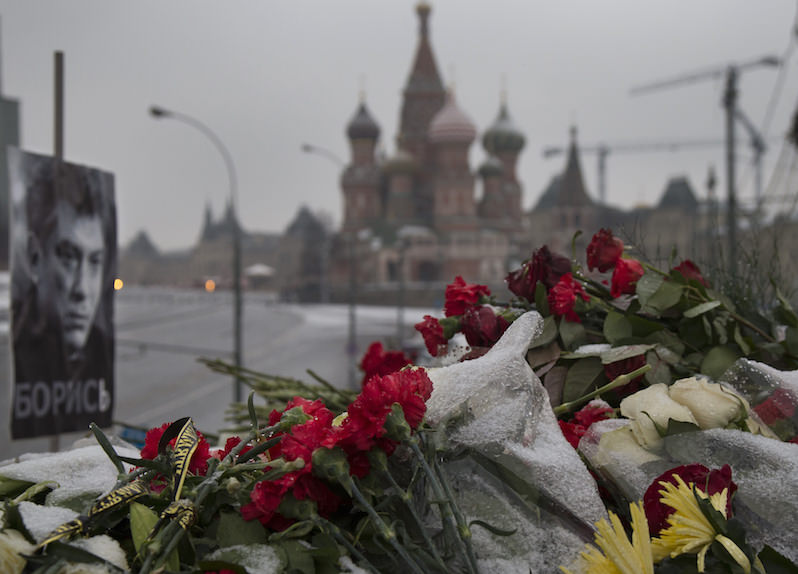 Flowers and a portrait with the words "Fight!" are seen in Moscow on Thursday at the place where Boris Nemtsov was gunned down Feb. 27 near the Kremlin. (AP / Alexander Zemlianichenko)
Flowers and a portrait with the words "Fight!" are seen in Moscow on Thursday at the place where Boris Nemtsov was gunned down Feb. 27 near the Kremlin. (AP / Alexander Zemlianichenko)
By Ivo Mijnssen and Philipp Casula
Boris Nemtsov — a former deputy prime minister of Russia and one of President Vladimir Putin’s leading critics — was shot dead on Feb. 27 just a few hundred feet from the walls of the Kremlin. His murder has shocked the nation and on Sunday prompted one of the largest mass demonstrations in Moscow since Putin regained the country’s presidency in 2012.
Nemtsov was one of Russia’s best-known opposition activists. A physicist by training, he began his political career in 1990, when he was elected to represent the city of Nizhny Novgorod (then called Gorky) in the Supreme Soviet of Russia. Later, President Boris Yeltsin appointed him to be governor of the larger Nizhny Novgorod region, and in 1997 he rose to become deputy prime minister.
Though he was generally well-known because of his various government posts, Nemtsov’s standing in wider public opinion was mixed. He was a respected figure in the opposition — holding together its various liberal and nationalist strands; co-founding the economically liberal Union of Right Forces Party in 1999, which dissolved in 2008; and helping to lead the liberal Republican Party of Russia/People’s Freedom Party since 2012. But he was also heavily associated with the 1990s, a period remembered by most Russians for its chaos, crime and economic decline.
He was killed only three days ahead of a rally that he had been helping to organize against government economic policies and Russia’s role in the current conflict in Ukraine. His murder sends powerful messages to the opposition as well as to the Kremlin itself.
Just hours before the activist was struck down, Radio Echo of Moscow aired his last interview, in which he had called Putin a “pathological liar.”
On the program, Nemtsov had ardently demanded an end to the “war with Ukraine” and had condemned Putin’s policy as “mad, aggressive and homicidal for our country.” He had also argued that the Ukraine conflict was the main reason for the current economic crisis in Russia.
Many of the details and circumstances of his murder still remain unclear, and the administration’s initial handling of the case has done little to inspire confidence that the crime will be solved in an impartial manner.
Putin has urged investigators to make the case their highest priority, and it has been placed under his direct supervision. Those investigators, however, initially have ruled out participation by nationalist Russian perpetrators, instead focusing on possible involvement by foreign agents or business associates of Nemtsov’s who might have terrorist backgrounds or personal motives. Most Russian and Western commentators have ruled out direct involvement by the Kremlin. However, participation by extreme nationalists or dubious Kremlin allies like the separatists in Eastern Ukraine appear at least possible. On Saturday morning, Russian investigators presented two men from the Northern Caucasus as their prime suspects.
To the liberal opposition, the killing represents a clear warning. Andrei Soldatov, a Russian security specialist, told Radio Free Europe/Radio Liberty that it is hardly a coincidence that the murder took place ahead of the planned rally, in full view of the public, underscoring the political and symbolic character of the crime. Aleksey Makarin, of the Center for Political Technologies think tank, went even further, telling the news site Gazeta.ru that the murder demonstrates that it is possible to kill one of the heads of the Russian opposition and count on impunity.
And what about all the other unknown opposition activists in Russia’s various far-flung regions whose death would not make it onto the front pages of international newspapers? In a growing climate of fear, hatred and distrust, fueled by the conflict with the West over Ukraine, there is no one who can guarantee the safety of dissenters who profess so-called “anti-patriotic” views as Nemtsov did in his condemnation of the Ukraine conflict. On the one hand, the rising nationalism, of which the Nemtsov murder could be one of its utmost expressions, certainly intimidates the liberal opposition. On the other hand, it paradoxically might induce liberals to seek the protection of Putin’s strong government, because they see him as the lesser evil and the only authority able to keep the rising nationalist tide in check.
In addition, the killing is also a message to the Kremlin itself because, as Gleb Pavlovsky, a Kremlin-leaning political observer, emphasized, the shooting took place in downtown Moscow. “You could have killed [him] on the stairwell,” he told Gazeta.ru, “but they killed [him] at the Kremlin walls.” Hence, he argues, it is a demonstration of power to the Kremlin as well.
Additionally, the murder is also a huge blow to the reputation of the country, Pavlovsky added, further contributing to its isolation and casting suspicion on the Kremlin both in the West and within Russia itself. Hence, in the short term, the Kremlin must find a way to demonstrate that the government played no direct or indirect role in the killing. In the long run, the Kremlin must show that it can control the nationalist tide that it has unleashed and that it can maintain security in the capital. For many, Nemtsov’s death is also demonstration of how Putin has failed to maintain key promises. Drive-by shootings and political assassinations in the capital were certainly not what Russians had in mind when Putin was first elected to the presidency in 1999. One of his key assurances at that time was that he would turn Russia into normal country, with stability and economic growth; that he would restore law and order; and even that he would establish dictatorship of the law. Putin recognized this failure when he said that “Russia should be devoid at last of the kind of shame and tragedies” as the murder of Nemtsov.
Now, with an ongoing war in Ukraine, the weight of international sanctions, and an economy in a downward spiral, those promises appear to have been shattered. Nemtsov’s murder makes it clearer than ever that Russia is not the “normal” place that Putin once vowed to make it.
The activist’s assassination reveals something important about the country’s political climate, too. At first sight, the killing seems like another heavy blow to the liberal opposition, of the democratic generation of politicians that came to the political scene in the 1990s.
Grigory Yavlinsky’s Yabloko Party is a telling example. Even in progressive Moscow, it failed to gain any seats in the last Moscow City Council elections in the fall of 2014. Yabloko might still exist, but it is politically irrelevant.
Still, though the killing is a human and political catastrophe, there is a flipside to the tragedy. Paradoxically, it also shows that politics itself is not dead in Russia. Behind the sterile facade of mass consensus for the current regime, there still is political contestation.
There are at least three contenders in the current political arena.
First, of course, is the Kremlin itself, which strives to create a depoliticized climate in which the government is the only political player in town. The administration and the officially sanctioned parties in the State Duma have to cover the entire political spectrum from left to right: workers, businessmen, nationalists, liberals and all other political strands should be able to identify with the current regime. This has been Putin’s grand populist approach for years — and to a large degree, the strategy succeeded in keeping the regime in power.
The second contender is a defiant, educated, liberal opposition, with “liberal” not always carrying the same meaning as it does in the West. It is small, marginalized, under threat, cut off from the mass media, and it has no widespread support among the larger populace. But it is alive. And it makes itself heard: mostly quietly, on the Internet, on the airwaves and in marginal publications; but sometimes more loudly, as on March 1, when the “anti-crisis march” turned into a march of mourning for Nemtsov. As few as 20,000 people, according to official figures, and up to 50,000, according to the organizers, walked along Moscow’s city center, and not in the city’s outskirts as had been originally planned.
In this second political segment, a generational break is due to occur. Ellen Mickiewicz, a Russia expert at Duke University and the author of “No Illusions: The Voices of Russia’s Future Leaders,” is rather pessimistic about young Russians’ political views, many of whom believe anti-government protests are the secret handiwork of United States government agencies. Russian researchers Denis Volkov and Maria Snegovaya, on the other hand, are more optimistic, stressing the huge gap that separates more Soviet-oriented older generations and more open-minded younger ones.
Urban, well-educated Russians, many of them without the baggage of Soviet-era values, could thus become an increasingly strong force. The Kremlin’s political strategists may have succeeded in calming them for the time being, but it is doubtful that these young people will be willing to simply accept impunity for Nemtsov’s killers and return to business as usual.
Finally, the third contender in the Russian political fight are those members of the rising nationalist tide, which the Kremlin has allowed and encouraged to grow.
The Kremlin itself has sown the wind of patriotism and has increasingly reaped a whirlwind of nationalism. The seizure of Crimea was accompanied by a huge patriotic wave, and the war in Ukraine by a full-blown propaganda campaign. That campaign blamed the West for the economic crisis and for the escalation in Ukraine, which brought nationalists of all stripes to the surface.
The Russian state has always displayed an ambiguous relationship to ultranationalists, courting them and rebuffing them. It has always tried to define which levels of nationalism are acceptable and which are not, and to monopolize both patriotism and nationalism. It is a dangerous game, however, that the Kremlin plays because extreme nationalists consider Putin’s aggressive foreign policy — one that has included the forceful alteration of international borders — to be a first step toward collecting all the lands they consider to be historically and ethnically Russian. Such an ethnically based notion of statehood is, however, very problematic in a country that consists of more than 120 ethnic groups.
It is doubtful whether the Kremlin or the country’s political elite really has an interest in relying predominantly on this extreme strand of the political spectrum. The current regime is thus increasingly maneuvering itself into an impossible balancing act between appearing tough and patriotic while not alienating the more moderate rest of the population.
Unfortunately, Putin already missed one chance to present himself as a leader capable of uniting the country again after Nemtsov’s murder. Citing other obligations, Putin and nearly every other leading politician in the country abstained from participating in Nemtsov’s burial on Tuesday, with deputy Prime Minister Arkady Dvorkovich standing out as the main exception. This absence of the ruling elite reveals a lot about the political climate in Russia as well.
Ivo Mijnssen holds an M.A. in Eastern European history and sociology from the University of Basel, Switzerland. His publications include the study “Back to Our Future! History, Modernity, and Patriotism According to Nashi, 2005-2013.” He is currently working on his Ph.D. in Soviet war memory and as a freelance journalist based in Europe.
Philipp Casula holds a Ph.D. in sociology and is a research fellow at the University of Zurich, Switzerland. He specializes in Russian affairs and political theory.
Your support matters…Independent journalism is under threat and overshadowed by heavily funded mainstream media.
You can help level the playing field. Become a member.
Your tax-deductible contribution keeps us digging beneath the headlines to give you thought-provoking, investigative reporting and analysis that unearths what's really happening- without compromise.
Give today to support our courageous, independent journalists.
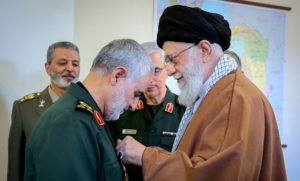
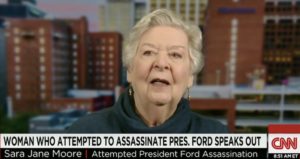

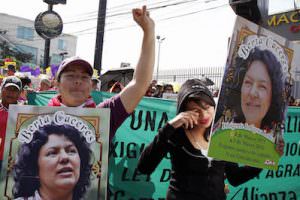
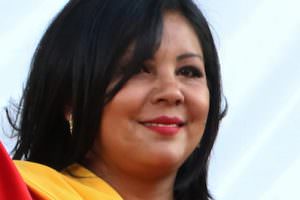


You need to be a supporter to comment.
There are currently no responses to this article.
Be the first to respond.